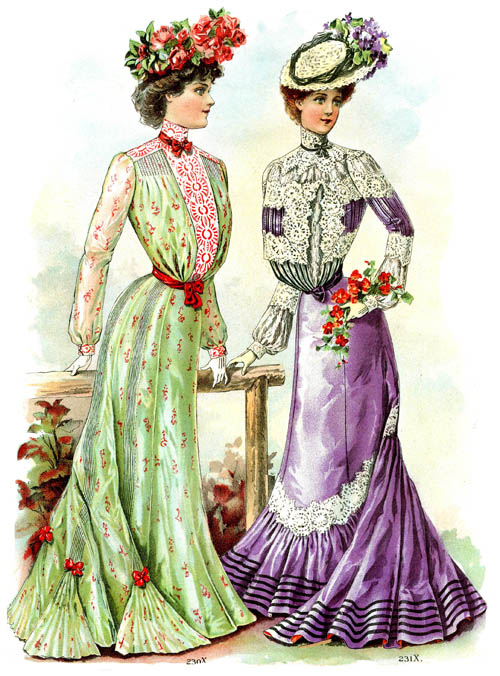|
Even after more than a century, the Victorian period still fascinates us. It continues to inspire collectors, decorators and designers. Victorian architecture is still admired and coveted. Victorian design themes are "on trend" and show no signs of fading away. Many of our favorite hobbies, such as scrapbooking, have their roots in the Victorian period.
Perhaps one reason the period intrigues us is that it is, of all "historic" periods, the one most similar to our own. Many of the social changes of the present - including women's rights, protection of children, protection of animals, and more effective charities for the poor - have their roots in the Victorian age. Victorian writing, though sometimes florid, is considerably closer to our own and easier to read than, say, something written in Elizabethan English. The Victorian era was also the first period that brought writing and literature into the reach of, and also about, the "common man." It was, indeed, the first era that could be described as having both a "mass media" and an "information explosion."
From the American standpoint, the Victorian era is also the first "period" that we share with the rest of the world. The American colonial period is American alone - and there is no "American Elizabethan" or "American Jacobean" period. It was the era in which America took its place with the rest of the world in terms of culture, fashion, architecture, business, and so forth.
While the Victorian era is generally defined as the reign of Queen Victoria (1837-1902), it didn't simply begin when Victoria took the throne, or end when she died. Victorians who were born and raised in the 1870's, 80's or 90's were still "Victorians" even after the death of the Queen. Thus, they carried Victorian ideas and ideals well into the 20th century. (We have one volume on this site from 1913, which hardly seems "Victorian" - except that its contents all have Victorian roots and Victorian writers.) Our own grandparents may not have been Victorians (or perhaps they were!) - but they were born into Victorian homes. My grandmother, for example, was born in 1910 - which means her parents would have raised her with Victorian values and styles. (And since she raised me, perhaps that explains a great deal...)
It's also tempting to refer to "the Victorian era" as if it were a single, homogeneous period. Nothing could be farther from the truth. Victorians born in the 1870's considered the "Victorian" era of the 1830's and 1840's vastly different from their own. The technological changes alone were staggering; those later Victorians might well have enjoyed electric lights and a telephone, luxuries unimaginable to their own, equally Victorian grandparents. Changes in women's roles and women's rights were equally staggering, as you'll find if you explore the "women's issues" section of this site. Styles, fashions and customs changed, just as they do today. To think of the Victorian era as "all the same" makes as much sense as supposing that the entire 20th century had the styles, customs and ideals of the 1920's or the 1960's.
Finally, it's tempting to regard the Victorian era as a stuffy, stodgy men's club, with women forced to stay home and know their place. Again, nothing could be farther from the truth. The Victorian era was the era that launched the women's rights movement. One reason we hear so much about "repression" is because women could, for the first time in history, write about it, complain about it, and do something about it. And they did. This is the era that brought us ladies the right to get a higher education and ultimately a higher degree. It's the era that opened doors for women to enter a host of careers formerly considered off-limits. It's the era that enabled women to decide that marriage and family weren't the only options - and that suffering in genteel poverty wasn't, in fact, nobler than going to work. It's not quite the era that brought women the right to vote, but it got the ball rolling.
In short, the Victorian period is the era in which everyday folks, men and women both, began breaking a bunch of older historic molds and shaping the world that we live in today. The deeper you dig, the more fascinating it becomes. It's not a rosy, romantic, simpler world. It's a very complicated world with lots of problems and flaws - much like our own. It's well worth getting to know!
|
Visit Our Victorian Shop
for:
Books
Coloring Books
Beautiful Spiral Journals
Holiday Greeting Cards
|
|


 Discover thousands of Victorian images in our
Discover thousands of Victorian images in our